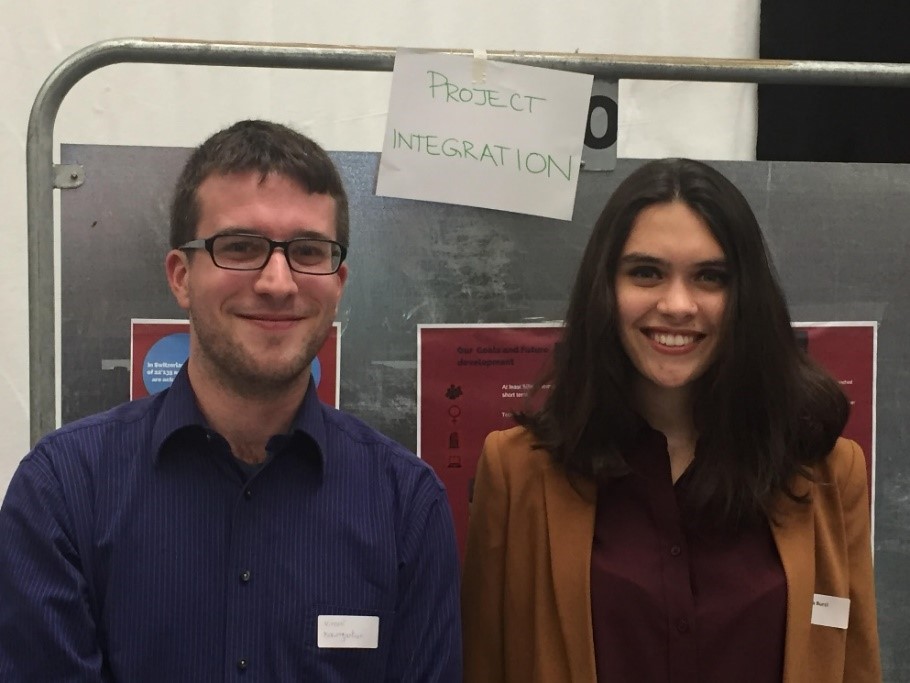 There are many quality courses available in Geneva for those looking to build their professional competence. I recently had the opportunity to attend one of these courses, targeted towards people conducting humanitarian work worldwide.
There are many quality courses available in Geneva for those looking to build their professional competence. I recently had the opportunity to attend one of these courses, targeted towards people conducting humanitarian work worldwide.
The course was conducted by the International Association of Professionals in Humanitarian Assistance and Protection (PHAP), who are a global professional association of practitioners in humanitarian work and related fields.
PHAP
Founded in 2010, PHAP is an individual-based professional association bringing together a wide range of categories of people working in the humanitarian sector. The organisation has grown to more than 4,000 members in more than 130 countries with a wider network of around 40,000, including UN staff, the Red Cross and Red Crescent movement, and international and national NGOs.
Providing support to its members and the wider humanitarian community, the association’s mission is “to empower capable and informed professionals to transform humanitarian action.”
Learning Opportunities
PHAP offers several learning opportunities, including:
- Intensive courses on Humanitarian Law and Policy and on legal and policy frameworks related to Refugees, IDPs, and Forced Migrants,
- Large-scale online learning sessions on various topics related to humanitarian action,
- The ISO-compliant, modular, and competency-based professional certification program for the humanitarian sector.
The Core Professional Training on Humanitarian Law and Policy
The course I attended was entitled Core Professional Training on Humanitarian Law and Policy.
It focused on reviewing international humanitarian law (IHL) and other legal frameworks applicable in times of war.
The intensive three-day program is for qualified humanitarian specialists, policymakers, United Nations staff, diplomats, government officials, professionals from NGOs, the military, journalists, researchers, and policy analysts.
Relevant for professionals whether or not they have prior legal training, the course covers the origins, the sources and development of IHL as a branch of Public International Law. It analyses:
- the qualification of armed conflict and determination of the applicable law,
- the distinctions between international and non-international armed conflicts,
- the applicability of international human rights law in armed conflict,
- the obligations of State and non-State actors,
- and, the implementation and the enforcement of IHL and the role of humanitarian actors in situations of armed conflict.
Thanks to the support of law professors and expert practitioners in the sector, the course connects theory to practice. This is done through discussions, case studies, and exercises that help participants analyse conflict situations and identify applicable law and better use IHL norms, taking into account their respective professional responsibilities and the mandate of the organisations they work for.
Thematic Workshop on Human rights in armed conflicts
To complement the Core Professional Training, participants were encouraged to join in the two-day Thematic Workshop that directly follows the core course.
The purpose of the workshop was to examine the complementary nature of international human rights law (IHRL) and international humanitarian law (IHL). Through the exploration of the legal aspects of those bodies of law, the workshop provided participants with an overview of what the application of human rights norms means in practice, with the view to improve protection of people affected by armed conflict.
With the support of case studies and exercises, participants were able to apply the fundamental notions to specific cases.
The next Core training is taking place from 9 - 13 December 2018 in Dubai, UAE, and from 21 - 25 January 2019 in Bangkok, Thailand.
The next Core Professional Training on Refugees, IDPs, and Forced Migrants: Protection in Law and Practice will be in Kampala, Uganda from 17 - 20 September and in Geneva, from 15 - 19 October 2018.
The PHAP secretariat welcomes members and others interested in the association to visit them at 87 Rue de Montbrillant.
For more information, visit PHAP


 There are many quality courses available in Geneva for those looking to build their professional competence. I recently had the opportunity to attend one of these courses, targeted towards people conducting humanitarian work worldwide.
There are many quality courses available in Geneva for those looking to build their professional competence. I recently had the opportunity to attend one of these courses, targeted towards people conducting humanitarian work worldwide.

